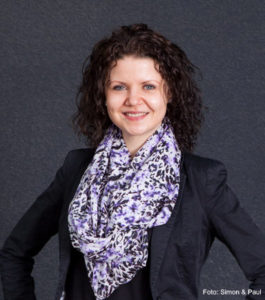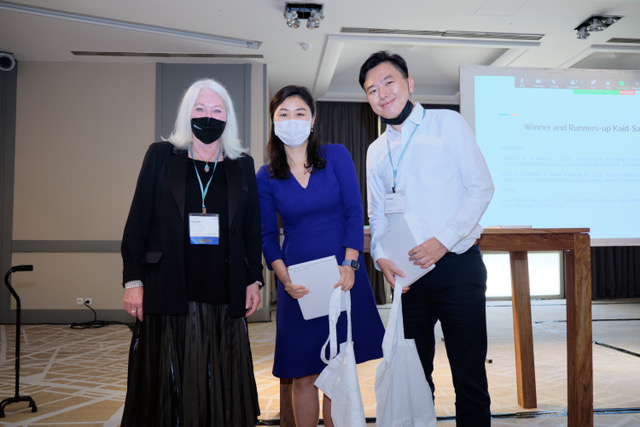Name (affiliation): Carina Weinmann (University of Mannheim)
 Paper title: Measuring Political Thinking: Development and Validation of a Scale for “Deliberation Within”
Paper title: Measuring Political Thinking: Development and Validation of a Scale for “Deliberation Within”
Co-authors (if any): –
Publication reference (if any; APA 6th): –
Q: What should people remember from your paper? (Please give the one main finding and/or take-home message of your research.)
A: In my paper, I developed and validated a psychometric scale to measure internal deliberative thought processes (i.e., “deliberation within”, Goodin, 2000). In the beginning, this project was rather based on egoistic motives as I needed this measurement for my dissertation. However, since I had the chance to present it to a broader audience, I hope that many scholars might find it useful for their own work in related areas.
Q: Was your paper part of a coherent session? Did the papers talk to each other? In which ways? What were the concerns shared by the papers?
A: My paper was part of a session on theoretical and methodological issues in research on political discussion and deliberation. Apart from the subject – interpersonal political discussion – the papers were rather different in their approaches and concerns. However, since there were many researchers sharing similar concerns in the audience, the presentations were followed by a lot of interesting comments and questions on all of them, which I think all of the presenters benefited from.
Q: Did you see fascinating/innovative/inspiring presentations at this year’s conference? What about them struck you as outstanding? (Please give your general impression and perhaps focus on one specific paper that stood out for you.)
A: What I like most about the ICA annual conference is that you learn about issues and perspectives which you usually not get in contact with when working on your own projects. Like in the years before, I was fascinated by the diversity and innovative strength of our field, and I enjoyed talking to scholars from many different areas. However, the session which impressed me most this year was not a paper session but the Blue Sky Workshop “Tips, Tricks and Hacks for Careers Inside Academia” organized by the Student and Early Career Advisory Committee (SECAC). In this workshop, two Associate Professors – Anne Kaun from Södertörn University (Sweden) and Nicholas Bowman from West Virginia University (USA) – as well as former ICA president Cynthia Stohl shared their personal career experiences with us. All of them spoke very openly about their past, including the setbacks and failures in their careers and personal lives. Besides, they spent a lot of time to answer all of our questions as young scholars, even after the workshop was finished. I found this workshop to be incredibly helpful for my own career planning and hope that the SECAC will organize a similar one in the next years.
Q: I will always remember the conference in Fukuoka because…
A: … it was a first time conference for me in at least two ways: Apart from Istanbul, I have never been to Asia before, and it was a truly impressing experience for me to get to know a culture which is so very different from the European one. Secondly, with this paper I had my first single author presentation in Fukuoka. As you can imagine I was incredibly excited and nervous at the same time. However, having received the Best Student Paper Award for this paper gave me a lot of confidence. Therefore, I would like to thank you again for this recognition and honor.
Goodin, R. E. (2000). Democratic deliberation within. Philosophy & Public Affairs, 29(1), 81–109. doi:10.1111/j.1088-4963.2000.00081.x




